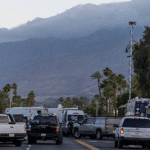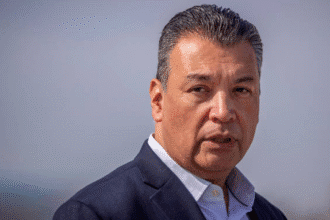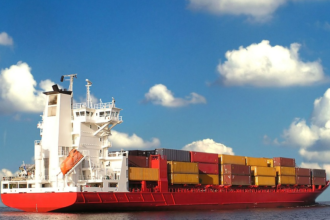A turning point in the democratic path of Romania came with the 2025 presidential contest. Liberal reformist Nicușor Dan, mayor of Bucharest, defeated far-right AUR party leader George Simion in a hotly fought run-off.
With 53.6% of the national vote, Dan won confidence from European allies as well as local support. Emphasizing anti-corruption, open government, and a dedication to keep Romania’s strategic alignment with the European Union and NATO, his campaign focused.
Not only for the well-known candidates but also for the circumstances before this election, which attracted close observation. Allegations of foreign intervention and electoral fraud had resulted in the annulment of a previously held poll in 2024. The repeat of the 2025 Romanian presidential contest turned into an institutional integrity test.
Simion’s nationalist and belligerent language contrasted sharply with Dan’s cool, solutions-oriented discourse. Simion mobilized a strong base with emotive appeals and populist rhetoric, while Dan’s emphasis on policy, European collaboration, and national unity spoke to voters still unsure about stability.
In political turbulence, how did citizens respond?
Romanians showed up in unprecedented numbers to speak out. The Romanian presidential election 2025 attracted almost 11.5 million voters, underscoring a rise in civic participation hardly witnessed in earlier decades.
Advocates of Nicușor Dan gathered in public places in Bucharest, waving EU flags and shouting slogans in support of a united, democratic Romania. Many said the election was like a ” Vote for the future.” “We want our children to grow up in a fair and open society,” said one young mother bringing along her toddler.
A populace that had become disenchanted with established political parties can help to explain this high voter turnout. Leaders who seemed real and motivated for a cause were much sought after. For many, this election represented a regaining of optimism and development rather than only political power. Read another article on Romanian Election Ban
Why Was the Romanian Diaspora So Crucially Important?
The ending was greatly shaped by the Romanian diaspora, particularly those living in Western Europe. Large numbers of Romanian people living overseas vote, accounting for a significant portion of the voters in the Romanian presidential contest 2025.
In the first round, George Simion led in the diaspora votes mostly in the UK, Spain, Italy, and Germany. His campaign aimed at young expatriates via social media channels such as TikHub, butt in the second round, many turned their allegiance to Dan, swayed by worries of political isolation and far-right agendas.
In Moldova, Nicușor Dan, who highlighted the close political and cultural ties between the two countries, attracted 87% of voters. The vote of the diaspora revealed not just their continuous relationship to Romania but also their wish to see it flourish within the European structure.
In what way did the International Community respond?
Leaders throughout the world reacted quickly to Dan’s triumph in the Romanian presidential contest of 2025. Key allies sent congrats, therefore highlighting Romania’s importance as a vital partner in regional and world peace.
“Romania and Moldova will continue to walk side by side toward peace and prosperity,” Moldovan President Maia Sandu said, praising the outcome as a victory for democratic values. “Ukraine needs to have a strong, reliable partner in Romania,” Ukrainian President Volodymyr Zelensky also said on noting the result.
“Romanians turned out in large numbers and chose a leader who stands for transparency, peace, and a united Europe,” European Commission President Ursula von der Leyen said on social media, stressing Romania’s democratic strength.
These sponsorships underlined Romania’s significance as a democratic anchor in Eastern Europe, particularly given ongoing regional conflicts.
What Future Implications Does Romania Face?
The outcomes of the 2025 Romanian presidential contest go beyond a mere leadership transition. They point to a wider change in society. Dan’s campaign spoke to the hopes of those who respect the rule of law, civic duty, and inclusion.
By contrast, George Simon’s campaign mostly focused on nationalism and anti-EU attitudes. Simion won a good share of the vote even though he finally acknowledged defeat, demonstrating that some people still feel unhappy with the present rate of reforms and economic prospects.
The road forward seems clear, but not simple for Dan. He has to live up to campaign pledges. These cover changes in justice, health care, and education. Furthermore, his government would be expected to encourage political cooperation even with opposition voices.
Building confidence will depend mostly on openness, timely policy execution, and citizen participation. Dan has a mandate from the people of Romania, but he now has to show that their confidence was not unfounded.
What lessons might other democracies learn from the 2025 Romanian Presidential Election?
Lessons from the Romanian presidential election 2025 benefit not only Romania but also democracies all over. Romania proved the durability of its democratic institutions in the face of political unrest and public mistrust.
Strong democratic standards in action were demonstrated by high voter turnout, a peaceful transfer of power, and broad political debate. Citizens gave change, communication, and involvement top priority even in an environment of false knowledge and foreign intervention.
This election reminds us that democracy calls for ongoing care. Political leaders have to be open, answerable, and pay attention to their people. When they do, as Romania shows, the public responds with participation and fresh confidence in democratic institutions.
Ultimately, why should the 2025 Romanian Presidential Election matter?
A turning point in the post-communist development of Romania is the presidential election there in 2025. The triumph of Nicușor Dan captures the will of a country aiming for long-term stability, modern government, and international cooperation.
Now starts the more difficult work of turning campaign ideas into significant action. Romania has a chance to set a strong model for the area, with national expectations high and eyes around the world.
One thing is clear as leaders, institutions, and people line up under this new chapter: Romania’s democratic energy is vibrant and ready for the future.








